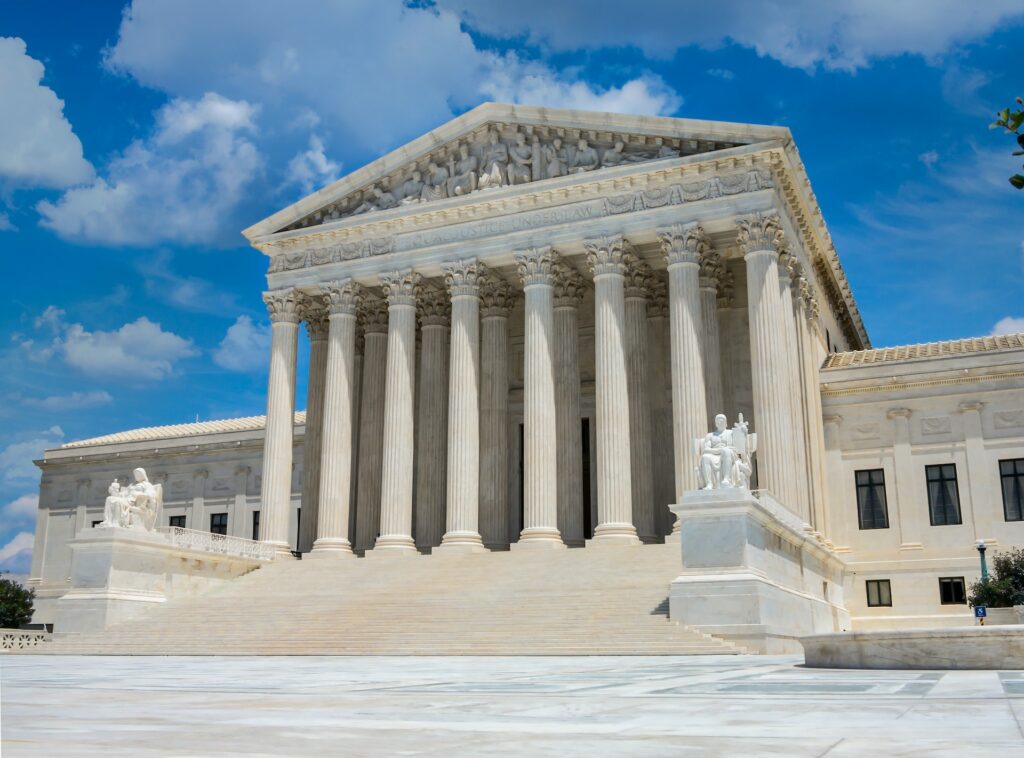
(Rightallegiance.com) – On Wednesday, the United States Supreme Court deliberated on a significant legal challenge concerning Idaho’s stringent abortion restrictions. At the heart of the debate is whether Idaho’s law, which almost completely bans abortion, conflicts with federal statutes that mandate certain standards of emergency medical care for all patients, including those who are pregnant.
The case has attracted nationwide attention as it pits state legislation against federal mandates, specifically the Emergency Medical Treatment and Labor Act (EMTALA) of 1986, which requires hospitals receiving federal funds to provide necessary emergency care. The Biden administration contends that this federal law should encompass the provision of abortions under specific medical conditions, a stance that has led to the present legal confrontation with the state of Idaho.
The legal battle began when Idaho enacted the Defense of Life Act in 2020, a law designed to take effect should Roe v. Wade—the landmark 1973 Supreme Court decision that established a woman’s constitutional right to an abortion—be overturned. The Supreme Court’s 2022 decision to rescind Roe triggered the Idaho law, imposing severe penalties for anyone performing abortions, punishable by up to five years in prison and the potential loss of medical licenses for healthcare professionals found in violation.
However, the law allows exceptions if the abortion is necessary to save the life of the woman. Despite this, a federal judge in August 2022 blocked Idaho from enforcing aspects of this law that conflicted with EMTALA, leading to further escalation as Idaho officials sought Supreme Court intervention.
During the oral arguments, the ideological divides within the Court were apparent. Liberal Justice Sonia Sotomayor and conservative Justice Amy Coney Barrett probed Idaho’s attorney, Joshua Turner, on the state law’s flexibility regarding medical emergencies that might require an abortion. Justice Sotomayor emphasized that under federal law, hospitals are obligated to intervene before a patient’s condition becomes life-threatening, questioning the subjective nature of medical decisions under the state law.
The Solicitor General Elizabeth Prelogar, representing the Biden administration, argued that the Idaho law places doctors and women in untenable positions, forcing physicians to choose between delaying necessary medical treatments or transporting patients out of state to access abortion services legally. Prelogar asserted that EMTALA mandates hospitals to offer necessary stabilizing treatment, which could include abortions in critical situations.
Conversely, conservative Justice Samuel Alito expressed skepticism about interpreting the Reagan-era statute to mandate abortion services, highlighting the tension between federal requirements and state legislations that aim to restrict them.
Dr. Jim Souza of St. Luke’s Health System in Idaho highlighted the practical implications of the law. He reported multiple instances where serious complications during pregnancy led to considerable uncertainty among healthcare providers, noting that the stringent state law often resulted in transferring women to states with less restrictive abortion laws.
The legal and medical communities are closely watching the Supreme Court’s deliberations, which not only affect Idaho but also other states with similar laws. The outcome could redefine the balance between state sovereignty in legislating healthcare and federal authority in ensuring emergency medical care standards.
As the court continues to consider these complex issues, the decisions made could have profound implications for healthcare providers and women across the nation, setting precedents for how conflicting state and federal laws are reconciled in the realm of medical and reproductive rights.